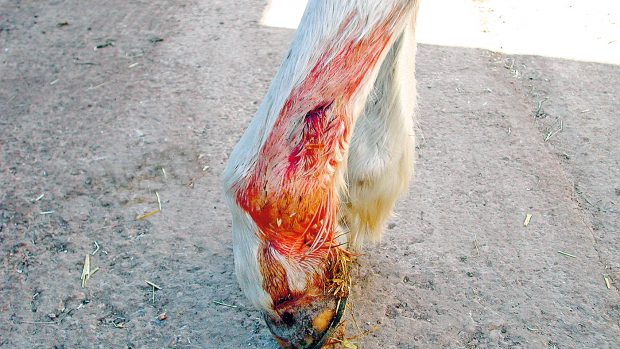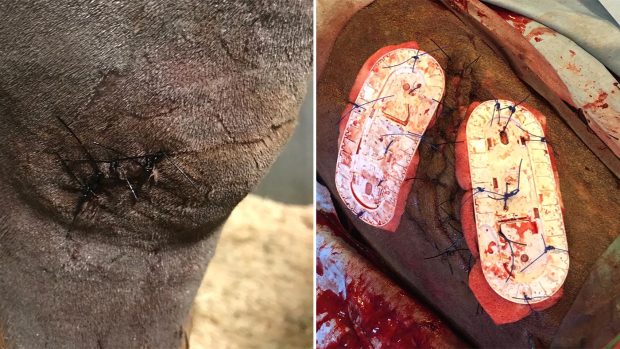Owners have been asked to share details of how any wounds their horses have suffered were treated for a new research project.
The Equine Wound Project launched by the British Horse Society (BHS) and scientists from Nottingham University aims to gather new evidence on the best methods of treatment.
“Owners sometimes have to deal with extremely variable wounds and we want to hear from them no matter how small the wound may be,” said Emmeline Hannelly, the BHS’s welfare education manager.
She said knowing how best to treat a wound “can be confusing as some treatments may be detrimental to healing.”
The project aims to provide answers to crucial questions such as when to call a vet, how long different wounds take to heal, when a horse will return to normal work and what the site of the wound will look like when it has healed.
Horse owners are asked to share details and photos of wounds, give an assessment and record treatment processes and healing outcomes.
Information can be submitted via Googleforms to the University of Nottingham.
Researchers want to hear about any type of equine wound regardless of whether it has had any veterinary treatment.
“There is currently a lack of research into which factors may delay or help equine wounds to heal,” said Gemma Stanford, welfare director at the BHS.
She said there was “no clear information available for owners about common wounds” and the BHS is “delighted to be to supporting the University of Nottingham with this new wound research project.”
Professor Gary England, dean of Nottingham University’s veterinary school and one of the project’s supervisors, said the evidence collected will be used to “develop high-quality education resources.”
Continues below…

Coping with wounds
Practical advice from Horse & Hound to help owners decide whether a wound needs stitching to ensure quick healing

Dealing with leg wounds
Leg wounds are an occupational hazard for working horses. However, if managed correctly, they stand a good chance of healing

Horse found with multiple stab wounds
The RSPCA is appealing for information following the brutal attack [Warning: Graphic photos]
The research is another “citizen science project” undertaken by the University following on from the previous colic research also done in collaboration with the BHS.
The closing date for the wound forms is 1 August 2019; to take part visit the BHS website.
For all the news, reports, interviews and featured, don’t miss H&H magazine, out every Thursday.



